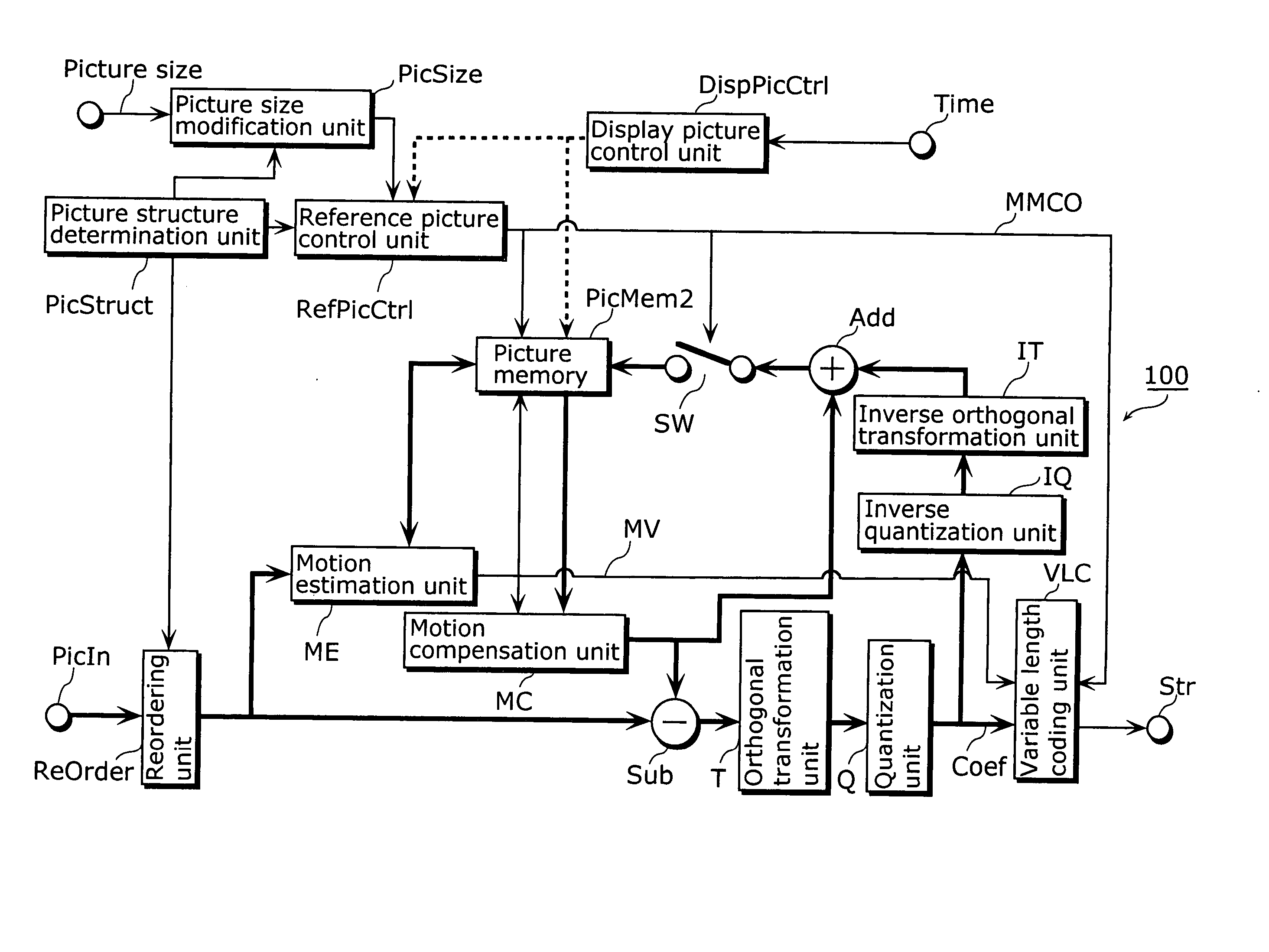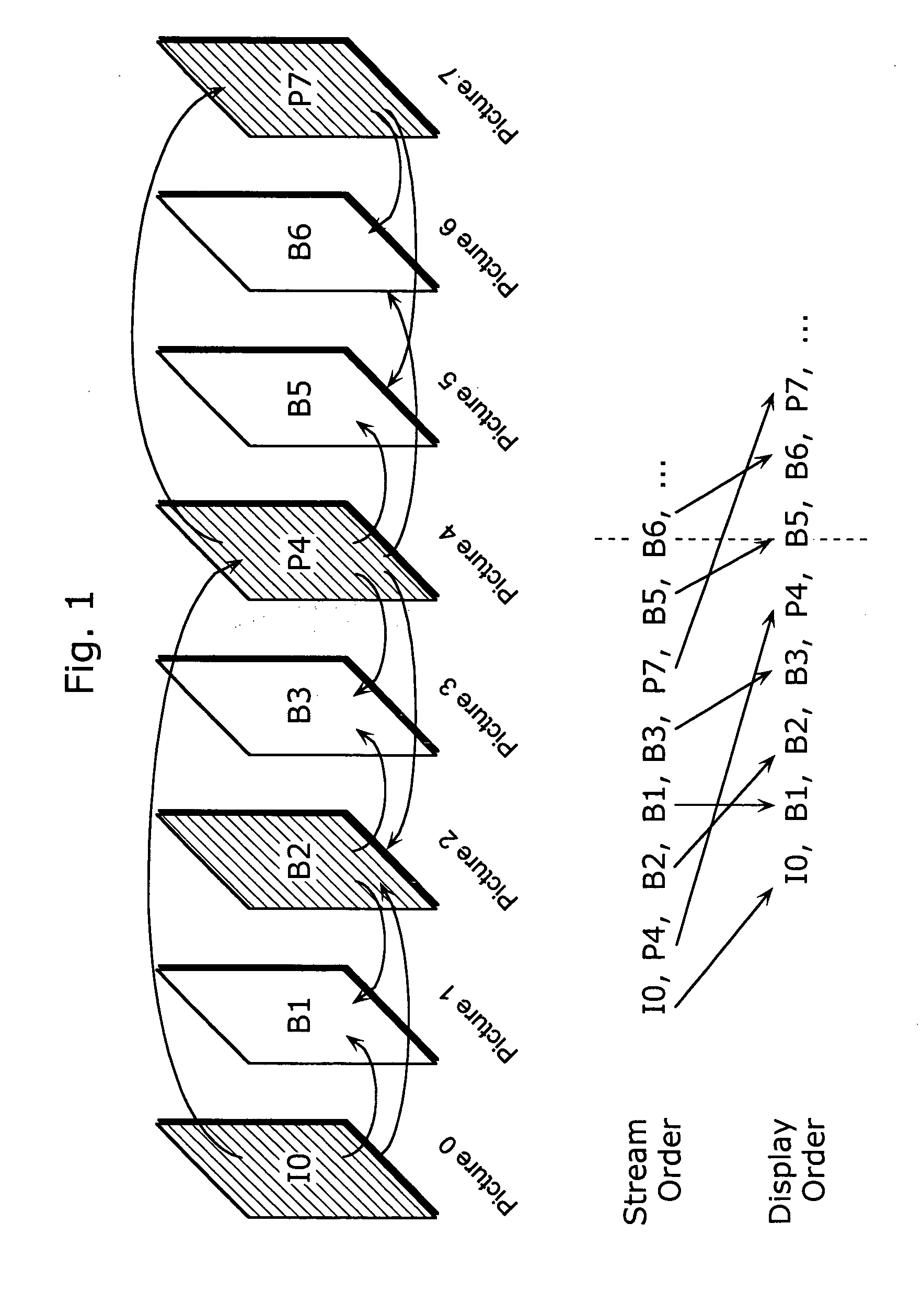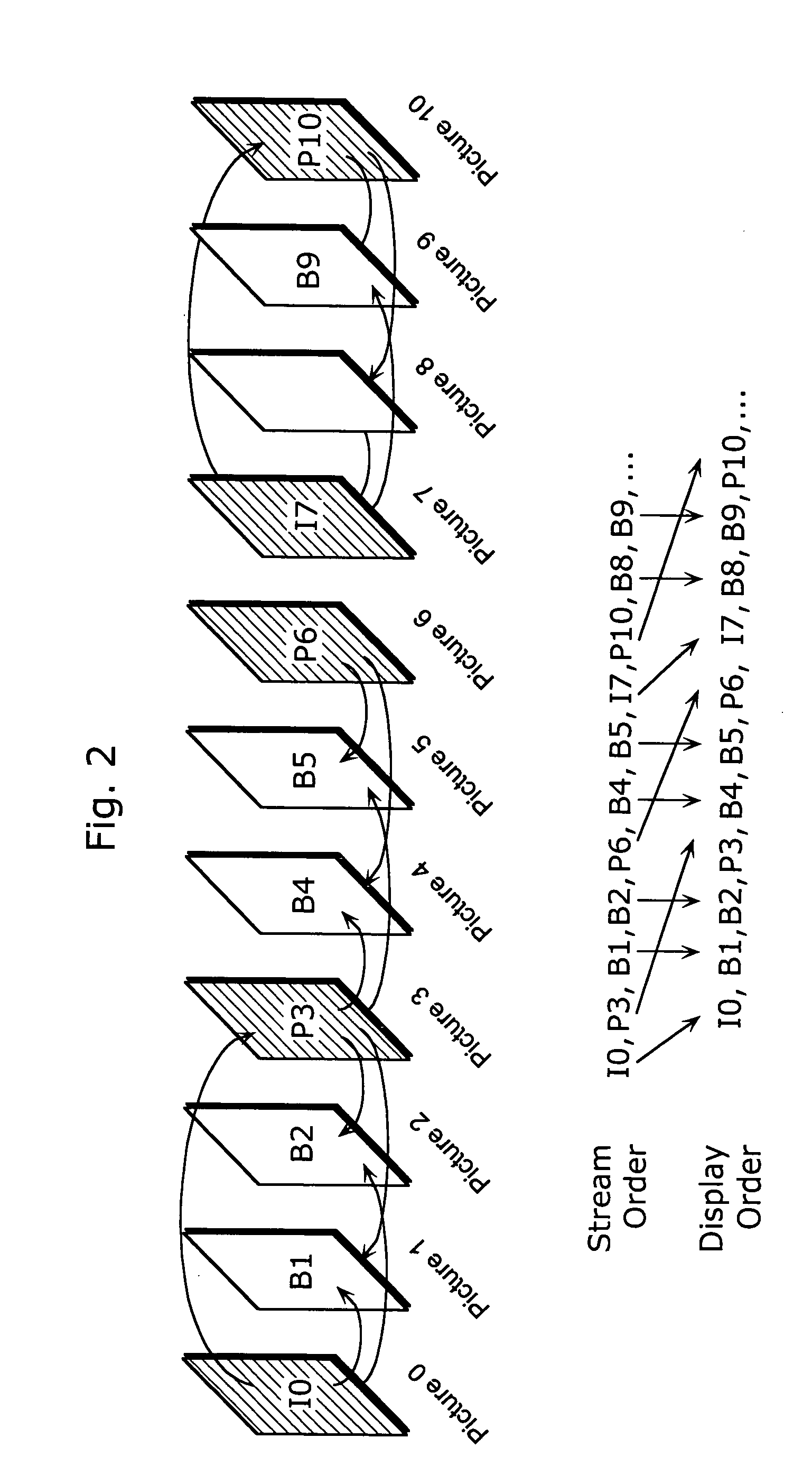Image coding method and image decoding method
a technology of image coding and decoding method, which is applied in the field of image encoding, can solve the problems of not being able to display pictures after being decoded, not being able to transmit video captured on the tv screen or shot by a tv camera, and not being able to handle the vast information directly in the digital format via the information media mentioned, etc., and achieves a high practicability value
- Summary
- Abstract
- Description
- Claims
- Application Information
AI Technical Summary
Benefits of technology
Problems solved by technology
Method used
Image
Examples
first embodiment
(First Embodiment)
FIG. 3 is a block diagram showing a picture encoding apparatus for realizing a picture encoding method of the present invention. The same referential numbers are put for the devices that operate in the same manner as described in the block showing a picture encoding apparatus for realizing a conventional encoding method shown in FIG. 26 and the explanation is thereby abbreviated.
Differences between the block diagram in FIG. 26 showing the picture encoding apparatus for realizing the conventional picture encoding method and the block diagram in FIG. 3 showing the picture encoding apparatus for realizing the picture encoding method according to the present invention are that a display picture control unit DisPicCtrl is added to FIG. 3 and that instructions sent from the display picture control unit DisPicCtrl are outputted to a reference picture control unit RefPicCtrl and a picture memory PicMem2.
In the picture encoding apparatus 100 shown in FIG. 3, a picture s...
second embodiment
(Second Embodiment)
The following describes a second embodiment of the present invention.
In the present embodiment, the display picture control unit DispPicCtrl shown in FIG. 3 instructs the picture memory PicMem2 not to store a picture newly in the area storing the picture that is not yet displayed, when a picture is stored in the released memory area. Normally, even an area for picture is released, a picture stored right before can be reproduced as long as a picture is not newly stored (overwritten) in the area. Even if a memory area in which the picture that is not yet displayed is released, the picture that is not yet displayed and is released at the time of display but is left without being overwritten can be displayed by storing a picture newly not in the memory area but in the area where the picture that is already displayed is stored. The picture in the released picture area of the picture memory is called picture for display. “Already displayed” here is practically synony...
third embodiment
(Third Embodiment)
The following describes a third embodiment of the present invention.
FIG. 7 is a flowchart of an operation of the picture encoding apparatus 100 of the third embodiment of the present invention. The present embodiment characterizes in determining the storage of the picture according to the time when the memory is released.
Firstly, in Step 30, the picture encoding apparatus 100 judges whether or not the decoded picture is to be stored in the picture memory PicMem2 based on the instruction indicated in the memory control command MMCO.
In the case of storing the decoded picture in the picture memory, the released picture memory area whose display time is the earliest within released area is obtained (Step 31) and the decoded picture is stored in the obtained area (Step 32).
The memory area in which the picture is decoded and stored at the earliest time instead of the memory area released at the earliest display time may be allocated as an area to store the pictur...
PUM
 Login to View More
Login to View More Abstract
Description
Claims
Application Information
 Login to View More
Login to View More - R&D
- Intellectual Property
- Life Sciences
- Materials
- Tech Scout
- Unparalleled Data Quality
- Higher Quality Content
- 60% Fewer Hallucinations
Browse by: Latest US Patents, China's latest patents, Technical Efficacy Thesaurus, Application Domain, Technology Topic, Popular Technical Reports.
© 2025 PatSnap. All rights reserved.Legal|Privacy policy|Modern Slavery Act Transparency Statement|Sitemap|About US| Contact US: help@patsnap.com



